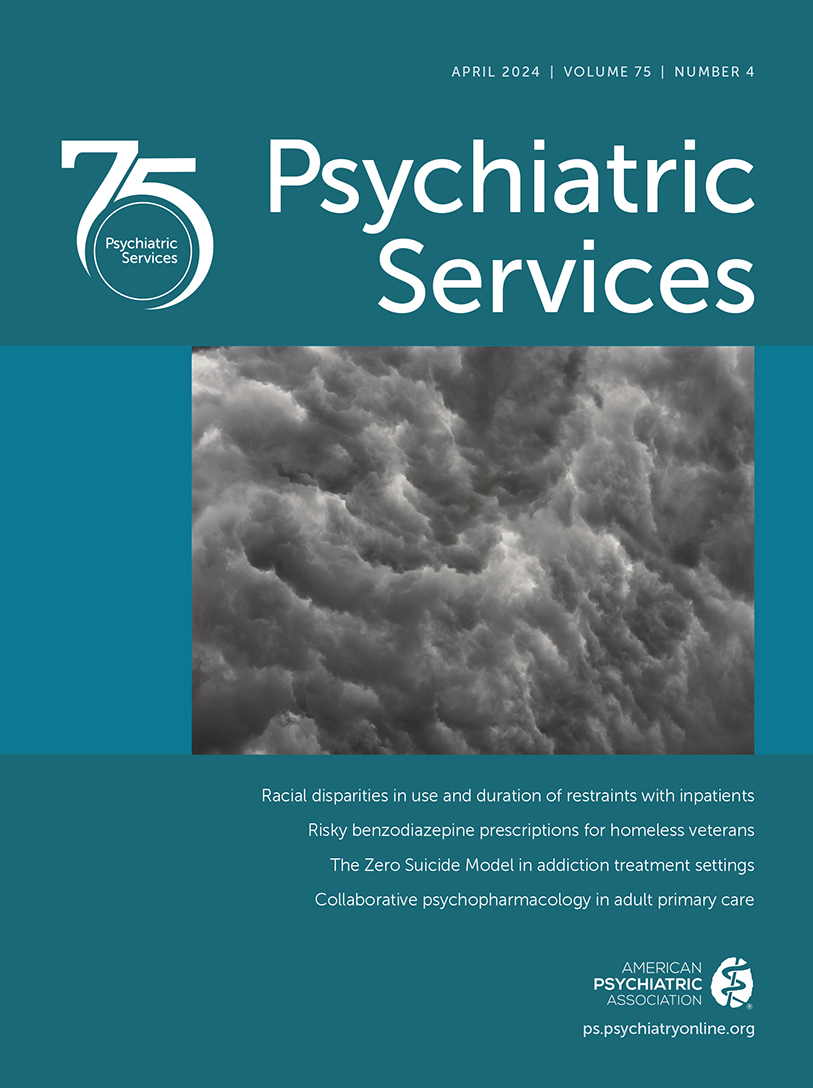Collaborative Psychopharmacology: A Low-Barrier Approach to Integrating Mental Health Services
Although the collaborative care model (CoCM) is widely recognized as the leading evidence-based model of primary care–based mental health care, CoCM implementation may face challenges pertaining to primary care provider (PCP) and psychiatrist participation and scheduling and patient eligibility. Colocated models of care, such as primary care behavioral health, may not realize the opportunities for care comanagement and interdisciplinary collaboration inherent in integration. Novel solutions are therefore needed to address populationwide psychiatric needs.
We developed and launched a collaborative psychopharmacology model in the adult primary care practice of an urban, tertiary, safety-net academic health system, serving about 50,000 patients in the northeastern United States. The practice uses an integrated mental health approach, including providers in other disciplines such as psychology and clinical social work. The practice has only 0.5 full-time equivalents (FTEs) of attending psychiatrist capacity, divided among three psychiatrists, and some limited added capacity from rotating psychiatry residents.
The goals of the collaborative psychopharmacology model were to increase patient access to psychiatrist care, promote collaboration between PCPs and psychiatrists, and enhance PCP skills and confidence in managing psychopharmacology. The new model aligns with inpatient consultation-liaison psychiatry approaches, wherein psychiatrists provide consultation to a primary medical team. In collaborative psychopharmacology, the psychiatrist directly evaluates the patient in a one-time consultation model. A face-to-face appointment enables the psychiatrist to gain a diagnostic impression and discuss treatment options with the patient. Given the nuances surrounding psychiatric differential diagnosis, and given patients’ questions and concerns around psychopharmacology, a direct evaluation by a psychiatrist—which often is not part of CoCM implementation—is clinically valuable.
To ensure that a one-time consultation facilitates ongoing PCP management, the psychiatrist documents an extensive treatment plan, including initial medication recommendations, information about adverse effects, titration recommendations (including increments and timing), and alternative medication recommendations if the initial recommended treatment is not effective or tolerated. The psychiatrist may prescribe an initial medication or ask the PCP to do so. The treatment plan represents stepwise recommendations that PCPs can implement in follow-up appointments with patients and is shared through the electronic medical record along with a confidential message to the PCP. During the evaluation, the psychiatrist informs the patient about the one-time model of care, including that PCPs manage refills, titration, and alternative treatments. As an example of a common case presentation, a patient may be referred for a diagnostic evaluation for attention-deficit hyperactivity disorder (ADHD); if ADHD is diagnosed, the psychiatrist suggests an initial medication (e.g., dextroamphetamine-amphetamine), alternatives (e.g., methylphenidate), and dosing guidelines.
For patients who require further diagnostic clarification or seek additional recommendations, psychiatrists can follow up directly with the patients or provide e-consultation to PCPs. For patients deemed to require longitudinal specialty mental health care (e.g., for treatment with clozapine or long-acting injectable antipsychotics), the patients are referred to the outpatient psychiatry clinic or to other community psychopharmacology providers.
We developed and disseminated this collaborative model through a series of team meetings in fall 2022. First, the model was developed among the three collaborative psychiatrists. The psychiatrists clarified which patients were appropriate for referral to the outpatient psychiatry clinic for longitudinal treatment. Next, the model was reviewed with other integrated mental health leadership and then with the practice’s PCP leadership. Finally, the model was presented to all PCPs at a practicewide meeting. One of the psychiatrists had begun implementing the model before clinicwide dissemination, and several patient cases were presented to illustrate the approach.
After these meetings, the model was launched in December 2022. From January to June 2023, the psychiatrists scheduled appointments for 291 unique patients and completed appointments for 217 of these patients. Within this period, 217 patients were scheduled specifically for new patient appointments, of whom 157 (72%) completed the appointments.
These early results, based on a psychiatrist capacity of 0.5 FTEs over half a year, suggest that a full-time psychiatrist in collaborative psychopharmacology could meet with nearly a thousand unique patients per year, representing substantially more capacity than offered through traditional outpatient psychiatry models. Future studies will examine treatment engagement, clinical outcomes, and comparisons with other psychopharmacology models. We believe that collaborative psychopharmacology is a model that can be implemented quickly, supports increasing collaboration between psychiatrists and PCPs, and may be a stepping stone toward full CoCM implementation.



